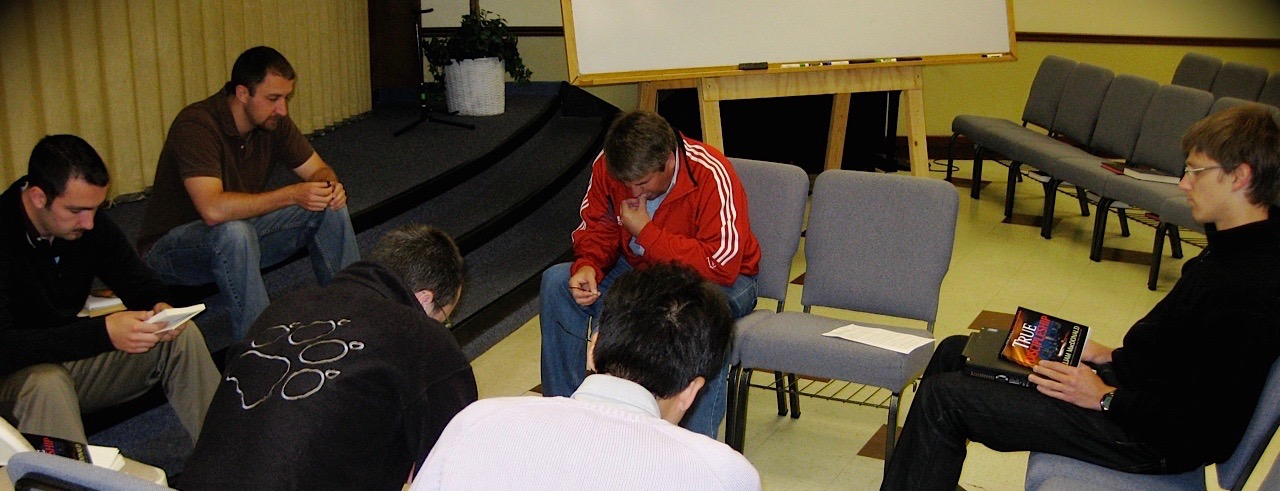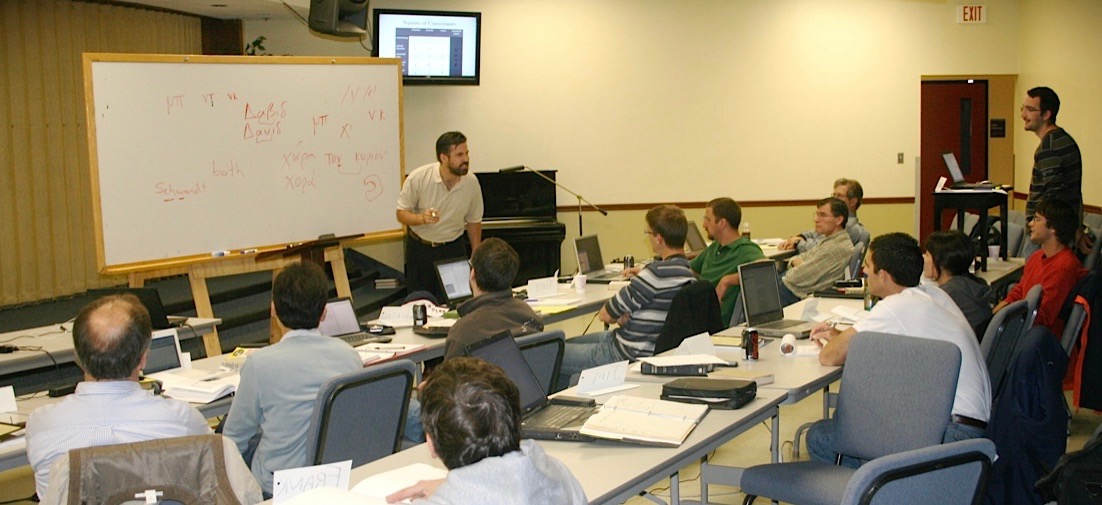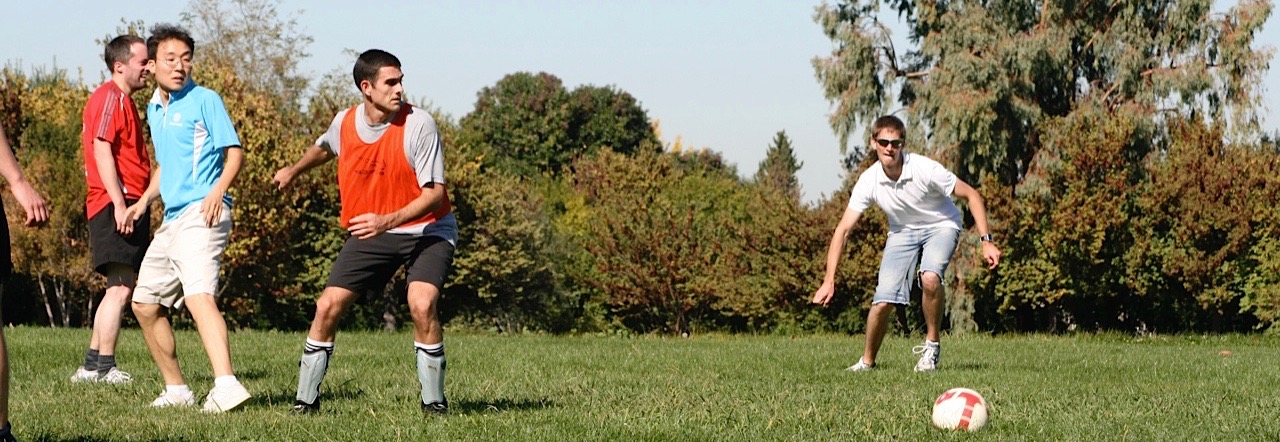Sanctification
We hold to the following doctrines
We believe that the moral standing of the Christian is perfect before God. In Christ he is “holy and blameless” (Ephesians 1:4). Justified by God, he possesses the imputed righteousness of God. For these reasons, Scripture rightly refers to believers as saints (1 Corinthians 1:2). We refer to this as positional sanctification.
We believe that the moral state of a Christian’s personal life here on earth is often less than perfect and at times may be sinful (1 John 1:8,9). Though the tyranny of sin over his life has been broken, the struggle with sin continues as long as he is in a mortal body of flesh (Romans 6:17,18; 7:18-25). God is at work in his life, however, changing him by stages and bringing his conduct into conformity with the image of Christ (Romans 8:1-30; 2 Corinthians 3:18). We call this process practical or progressive sanctification.
We believe that the Holy Spirit assists the Christian in growing in practical sanctification. The Spirit enables him to put “to death the deeds of the body” (Romans 8:13). He leads him (Romans 8:14). He assures him that he is a son of God (Romans 8:15,16). He helps him to pray and intercedes for him (Romans 8:26,27).
We believe that God will make the moral state of the believer perfect when he is finally freed from his mortal body and is with Christ (1 Corinthians 15:50-54). “We know that, when He appears, we shall be like Him, because we shall see Him just as He is” (1 John 3:2). Some refer to this as perfect or final sanctification.
We apply these doctrines as follows
Personal Holiness
Personal sanctification begins at the moment of salvation. It progresses as the believer comes to understand his position in Christ and the Lord’s work on his behalf. It is perfected when Christ returns for His church or the believer goes to be with Christ. Only then will his struggle with sin and temptation end.
Scripture describes how a Christian can live a godly life in Romans 6:1-23. It explains that the believer is united with Christ in His death, burial, and resurrection. He is freed from sin and raised to newness of life. This being so, the believer should consider himself “to be dead to sin, but alive to God in Christ Jesus” (Romans 6:11). He should no longer yield himself to sin but to God. With the apostle Paul, he can now say, “I have been crucified with Christ; and it is no longer I who live, but Christ lives in me; and the life which I now live in the flesh I live by faith in the Son of God, who loved me, and delivered Himself up for me” (Galatians 2:20).
Holy conduct is more than simply not doing what is prohibited by the Bible. We are to do that which is pleasing to the Lord, that which brings Him glory (1 Corinthians 10: 31; 2 Corinthians 5:9). We should consider each act in light of our life purpose (1 Corinthians 10:23; Hebrews 12:1,2). We should seek to be an example to others (Romans 14:13; 1 Thessalonians 5:22). We should always remember that we are “children of the promise” (Romans 9:8), “children of light” (Ephesians 5:8), and “children of God” (Philippians 2:15). We should aspire to walk as Christ walked (1 John 2:6).
We grow in practical sanctification by various means. These include Bible study, memorization of Scripture, participation at the Lord’s Supper, and prayer.
Personal Time With God
One of the most effective means of growing in personal holiness is the discipline of a daily time alone with God. It is good to begin this time with personal examination and the confession of any sin the Spirit brings to mind. Next comes meditation on God’s Word. Here it is best to work through a book of the Bible, considering a few verses each day. As we do so, God speaks to us through His living Word, teaching, reproving, correcting , and training us (Hebrews 4:12; 2 Timothy 3:16). Then we should spend time in prayer to God, seeking His wisdom and guidance for our lives and interceding for the needs of others. Time should also be given to praise and worship, honoring God for who He is and what He has done. Time alone with God at the start of each day is especially helpful. David writes, “In the morning, O Lord, Thou wilt hear my voice; In the morning I will order my prayer to Thee and eagerly watch” (Psalm 5:3). It was also the example of the Lord Jesus. We read in Mark’s gospel, “And in the early morning, while it was still dark, He arose and went out and departed to a lonely place, and was praying there” (Mark 1:35).
A family devotional time is also important. Husbands should pray with their wives. Parents should pray with their children. We should read and discuss the Scriptures as families.
Conscience
God has given each of us a conscience to help us know right from wrong (1 Samuel 24:5; Romans 2:14-16; 13:5). We must be sensitive to it, seeking “to maintain always a blameless conscience both before God and before men” (Acts 24:16). This means being subject to the civil authorities of our country, obeying its laws and paying our taxes (Romans 13:1-8; 1 Peter 3:13-17). It means being honest in our business dealings and being faithful employers and employees (Proverbs 16:11; Ephesians 6:5-9). It also means being careful not to unnecessarily offend people of other faiths or cultures (1 Corinthians 10:24-33).
Medical Aid
When faced with illness, we should first look to God for help. The life of faith, however, does not prohibit us from then receiving help from medical professionals. Most serious physical illnesses and some mental and behavioral problems have a physical source. Christians should make use of such help when necessary, thanking God for providing it. They should be cautious, however, when turning to secular therapists and psychologists to remedy moral and spiritual problems. The victorious Christian life is found in a proper knowledge of who we are in Christ and a life of faith and obedience to God. We cannot expect secular counselors providers to understand or support these spiritual truths.



